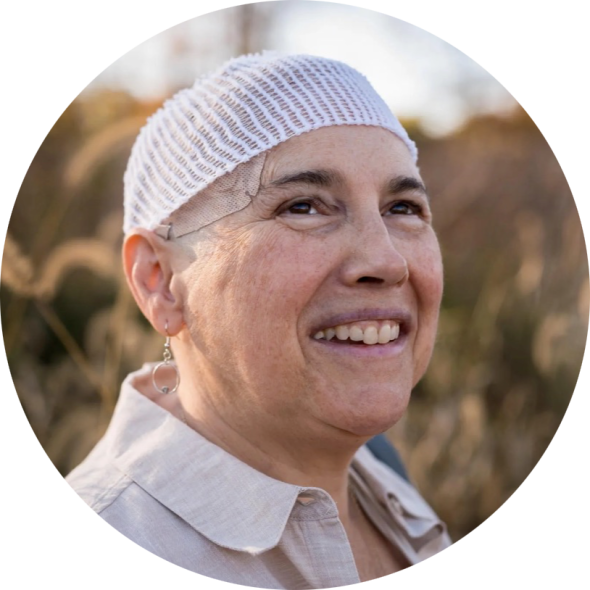Brain cancer: A revolution in treatment in Quebec
Dr. David Roberge, a radiation oncologist at the Centre hospitalier de l'Université de Montréal (CHUM), is one of the many medical specialists fighting to improve healthcare in Quebec through innovation. Looking beyond more conventional therapies for treating brain tumours, he hopes to make electrical field helmets available to pediatric and adult patients. This specialist in radiation oncology and nuclear medicine is at the forefront of the fight against cancer.
Electrical field helmets: a major breakthrough
Brain cancer: a public health issue
A brain cancer diagnosis can be devastating for patients and their families. Treatment is often lengthy and typically involves radiotherapy and chemotherapy. And while these methods are effective, they are limited in how much they can extend a patient's life expectancy or improve their quality of life.
In fact, the methods currently used to treat brain cancer deliver variable results and can cause significant side effects. Radiotherapy and chemotherapy can damage healthy cells and affect their function over the long term.
In addition, not all brain tumours respond to these therapies and resistance sometimes occurs. That's why researchers are actively looking for new options, like electrical field helmets, that could improve patient prognosis.

Electrical field helmets: a promising alternative
Dr. Roberge has spent years fighting bureaucracy in the healthcare system in the hopes of expanding access to electrical field helmets for brain cancer patients. The devices are intended to be used in combination with existing treatments, such as radiotherapy and chemotherapy, for the most common forms of brain tumours. They are the most remarkable development in brain cancer treatment in the last 20 years. Making this technology available in hospitals would significantly improve the quality of care offered to patients.
Electrical field helmets slow tumour growth by disrupting cancer cell division. Even though the devices have been approved for adults by Health Canada, their use isn't covered by the Quebec healthcare plan. This complicates access to the groundbreaking therapy.
Barriers to accessing new therapies
Although electrical field helmets are proven to be effective, their use isn't covered by the Régie de l'assurance maladie du Québec (RAMQ). What's more, the Institut national d'excellence en santé et en services sociaux (INESSS) hasn't recommended that the province pay for the cost of this therapy, even though the institute has acknowledged the efficacy of the treatment. This decision highlights the challenges that specialist physicians like Dr. Roberge face in introducing new technologies, particularly in the field of oncology.
Dr. Roberge has spent more than 10 years trying to make this treatment available to Quebecers. He has obtained approval from Canadian authorities and spurred media coverage of the issue to get public support. Thanks to his hard work, more than 100 patients have been treated with electrical field helmets while in hospital, which has extended their life expectancy.
The importance of clinical research
The ever-determined Dr. Roberge has also participated in various research projects over the past 10 years. As a result of his continued efforts, the helmet manufacturer set up its head office in Montreal and most of its employees are now based there.
Dr. Roberge remains committed to his patients, tirelessly jumping through administrative and political hoops. And his tenacity is paying off, one success at a time. This patient advocate never gives up!
Innovation is crucial to the future of Quebec's healthcare system. We need specialists like these radiation oncologists to implement transformative solutions, such as electrical field helmets for brain cancer patients. By specifically targeting cancer cells, this technology opens the door to new possibilities in the treatment of brain tumours.
Dr. Roberge's team of doctors, nurses and researchers works tirelessly to improve care for oncology patients. Through their hard work and dedication, they serve as inspiration for all healthcare professionals.
Other inspiring stories
The Fédération des médecins spécialistes du Québec (FMSQ) is made up of nearly 11,000 specialist physicians representing 59 recognized medical specialties. Our mission is to defend and support specialist doctors who are members of our affiliated associations and work in the public health system, while promoting quality care and services for the people of Quebec.